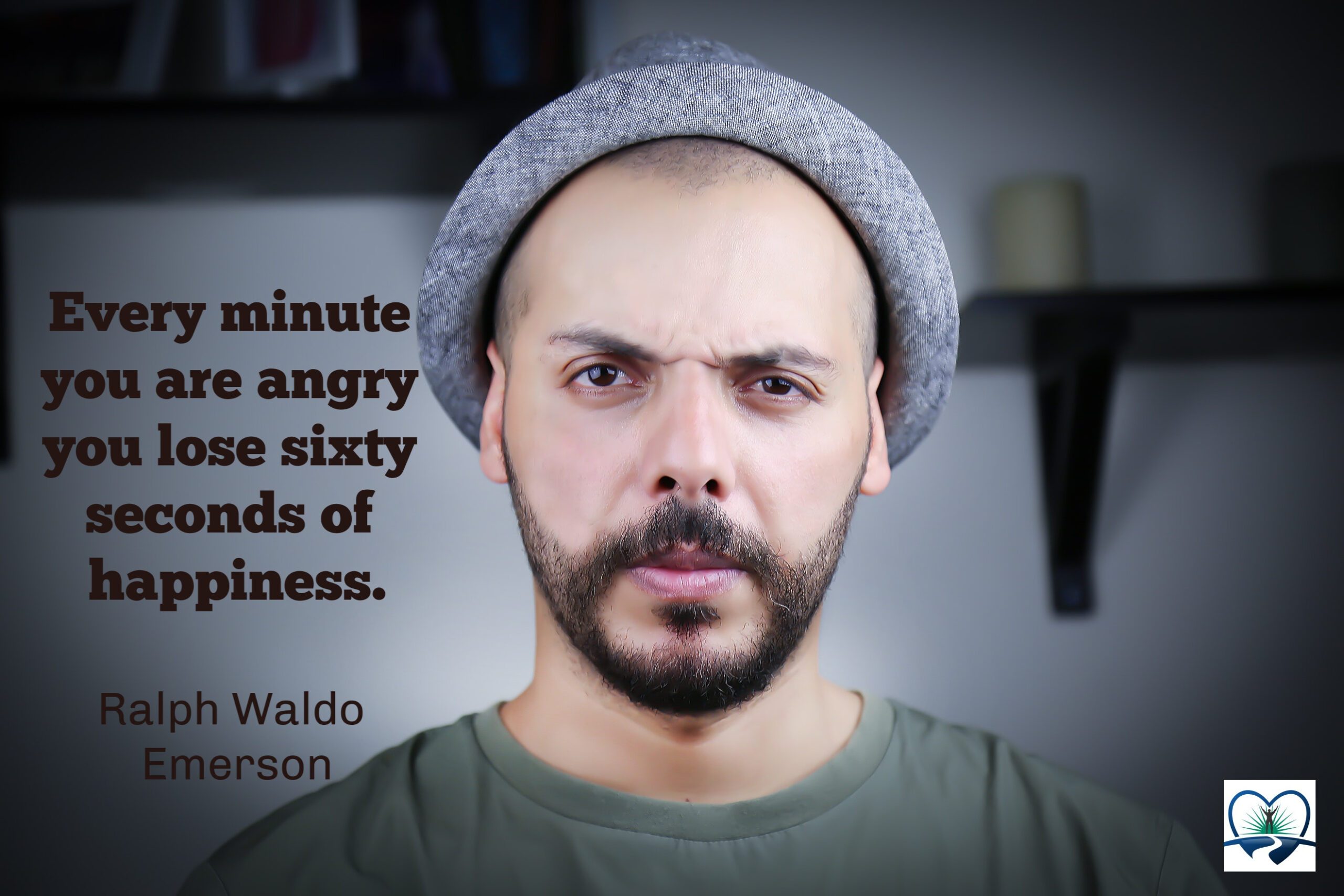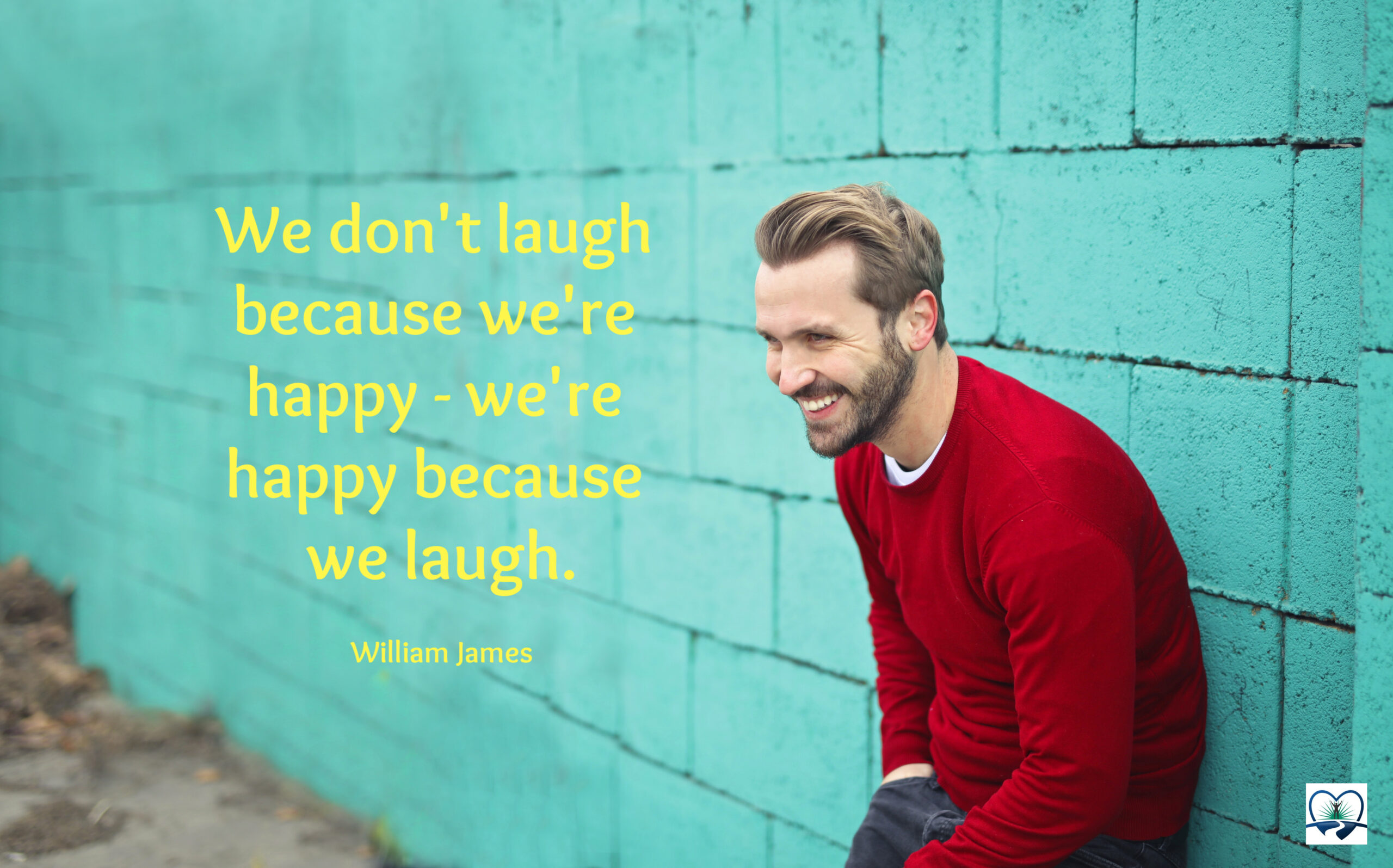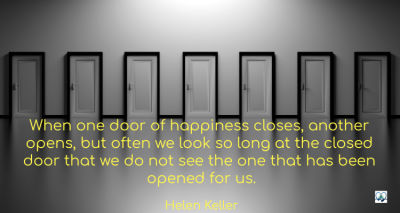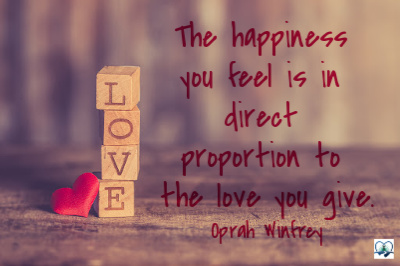Archive for August 2019
How To Find Happiness In Your Life
It really is possible for you to be happy.
Sometimes it can seem like you’re playing a game of hind-and-seek with happiness. Some days you might catch a fleeting glimpse of it, but it still eludes you. Yet happiness is something you can have – you just need to know how to find happiness in your life.
When you search the internet, you’ll find widely varying opinions about how to find happiness in your life.
When you look at quotes about finding happiness in life, you’ll often see a correlation between having meaning in life and happiness. Yet, not everyone who has a meaningful life is happy. There are people who dedicate their lives to someone or some purpose and are still miserable.
Some say it’s a choice and that you must will yourself to be happy.
Some say you can only find happiness through putting yourself first.
Some say happiness is an inside job.
Others say you can and should find happiness outside of yourself.
Some say you just fake it until you make it.
And some even say you can’t find happiness. You can only stop doing things that make you unhappy.
All these different opinions can definitely leave you confused, frustrated, but hopefully not ready to give up your search for happiness.
So, what does it take to find happiness?
Positive psychology suggests that living a meaningful life is a necessary ingredient of, but not the only one required to create a happy life. And I think this statement contains the key to understanding how to find happiness in your life.
Happiness is a personal experience.
It might require that you make a choice to be happy. It might require that you find and pursue your life’s purpose. It might mean that you’re hedonistic and put yourself first. It might be that you can only find happiness by going within and knowing yourself. It might be that you can only find true happiness when you’re interacting with someone or something outside of yourself. It might be that you can only find happiness by smiling more. And it might be that you can only find your happiness by ceasing to do those things that steal happiness away from you.
These are all possibilities because what makes you truly, deeply happy is unique to you in this moment. This also means that what makes you happy can change as you change.
I refuse to accept other people’s ideas of happiness for me. As if there’s a “one-size-fits-all” standard for happiness.
Kanye West
Remember when you were a kid and eating a piece or package of your favorite candy made you so incredibly happy? Does eating that candy still make you happy today? It might because it takes you back to the joys of your childhood. It might not because your tastes have changed and now you can’t stand that particular candy.
Finding happiness in your life isn’t about reaching a destination. Instead, it’s about the pursuit and how you interpret what you’re experiencing right now.
It turns out that how we label what we’re experiencing actually defines it. That doesn’t mean that if something is sad or makes you angry that you should say it actually makes you happy – unless you can shift your perspective enough to be happy.
For example, when people lose to death someone they love, they’ll often say something like, “I’m glad they’re not suffering anymore,” or “I know they’re in a better place now.” Sentiments like these can often help people shift their perspective not necessarily to happiness, but toward acceptance. And accepting what is is a great starting point for finding happiness.
That’s because happiness is found in the present. You may have memories of the past that bring you happiness when you recall them, but you’re still feeling the happiness now – in the present moment. The present is where you live your life. Once you fully accept the current circumstances of your experience, then you can begin to regularly find happiness in your life through all the myriad possible ways.
So how do you find happiness in your life?
By being present to what is and finding enjoyment in being alive through serving others, living your purpose, playing, willing yourself, nurturing yourself, smiling more, or even just noticing your breath.
The secret is you get to define and choose how you find happiness throughout every single day. And once you do, you’ll no longer feel like you’re playing hide-and-seek with it – unless doing so makes you happy.
I’m Dr. Karen Finn, a divorce and life coach. Ready to create more happiness in your life? Join my newsletter list for free weekly advice. Schedule a 30-minute private consultation for personal support.
Looking for more information about how to find happiness in your life? You’ll find what you’re looking for in Building A Happy Life.
18 Quotes From Famous Americans About Finding Happiness In Life
Which of these quotes inspire you to greater happiness in life?
The pursuit of happiness in life is one of the goals the founding fathers had for each American. Things have really changed a lot since the 1770s, but one thing hasn’t. We each still search for happiness.
The following quotes about finding happiness in life are all from famous American’s – from the founding fathers to media moguls. You’ll probably see some similarities in the sentiments, but you’ll also hear the individual path each of these people took to first define and then find their own version of happiness.
1. Maya Angelou “My mission in life is not merely to survive, but to thrive; and to do so with some passion, some humor, and some style.
2. Dale Carnegie “Success is getting what you want. Happiness is wanting what you get.”
3. George Washington “Happiness depends more upon the internal frame of a person’s own mind than on the externals in the world.
4. Ralph Waldo Emerson “Every minute you are angry you lose sixty seconds of happiness.”

5. Lady Gaga “At the end of the day, you won’t be happy until you love yourself.”
6. Franklin D. Roosevelt “Happiness lies in the joy of achievement and the thrill of creative effort.”
7. Benjamin Franklin “One’s true happiness depends more upon one’s own judgement of one’s self, on a consciousness of rectitude in action and intention, and the approbation of those few who judge impartially, than upon the applause of the unthinking undiscerning multitude, who are apt to cry hosanna today, and tomorrow, crucify him.”
8. William James “We don’t laugh because we’re happy – we’re happy because we laugh.”

9. Jackie Kennedy “You have to be doing something you enjoy. That is the definition of happiness!”
10. Abraham Lincoln “Folks are usually about as happy as they make up their minds to be.”
11. Thomas Jefferson “Our greatest happiness does not depend on the condition of life in which chance has placed us, but is always the result of a good conscience, good health, occupation, and freedom in all pursuits.”
12. Helen Keller “When one door of happiness closes, another opens, but often we look so long at the closed door that we do not see the one that has been opened for us.”

13. Kanye West “I refuse to accept other people’s ideas of happiness for me. As if there’s a “one-size-fits-all” standard for happiness.
14. Bob Hope “When we recall the past, we usually find that it is in the simplest things – not the great occasions – that in retrospect give off the greatest glow of happiness.”
15. Henry Ford “There is joy in work. There is no happiness except in the realization that we have accomplished something.”
16. Oprah Winfrey “The happiness you feel is in direct proportion to the love you give.”

17. Benjamin Franklin “Happiness consists more in the small conveniences of pleasures that occur every day, than in great pieces of good fortune that happen but seldom to a man in the course of his life.”
18. Eleanor Roosevelt “Happiness is not a goal; it is a by-product.”
Some of these quotes require some study (and maybe a dictionary!) while others are deceivingly simple. Hopefully, you’ve found one or two to help you secure more happiness in life for yourself. And the wonderful thing that happens when you’re genuinely happy is that it can help others to find happiness too.
I’m Dr. Karen Finn, a divorce and life coach. Ready to create more happiness in your life? Join my newsletter list for free weekly advice. Schedule a 30-minute private consultation for personal support.
Looking for more information about how to find more happiness in life? You’ll find what you’re looking for in Building A Happy Life.
How Much Grief In Divorce Is Normal?
How to know if what you’re feeling is excessive grief or not.
It’s normal and expected that you will feel grief in divorce. After all, divorce is the end of a way of life and of your dreams. It makes sense that you’d feel sad about it, mourn who you were in your married life and are no more, and be grief-stricken that all of your plans for a happily-ever-after have come to a screeching halt.
It’s even normal for grief in divorce to trigger situational depression and for you to have some seriously uncharacteristic and uncomfortable thoughts.
Dealing with divorce grief is really hard. For most people, it’s a depth of pain they’ve seldom or ever experienced before. And because it’s so unfamiliar, it’s important to know – and be able to recognize – when what you’re experiencing is not typical.
What is normal grief?
Elisabeth Kubler-Ross was a pioneering grief researcher. She found that there are 5 stages of grief: denial, anger, bargaining, depression, and acceptance. She also found that no one simply proceeds through each of the stages one after the other.
Grief in divorce is complicated and personal. No one experiences it in exactly the same way.
Chances are you’ll flow through the stages more than once and not always in the same order. In fact, you may even find yourself revisiting your grief about your divorce long after you think you’ve healed.
And every last bit of this is normal.
However, not everyone has a normal grief experience when they divorce. Some people seem to get stuck in their grief and don’t get over it. This is complicated grief.
How to recognize complicated grief.
When should you be concerned about how long it’s taking you to get over your grief?
As you proceed through your grief in divorce, you’ll eventually notice that:
- You’re accepting the reality of the loss of your marriage, your dreams for the future, and everything else that is no more because of your divorce.
- You allow yourself to truly feel the deep pain of your losses.
- You’ve adjusted to your new life.
- You’re building new friendships and maybe even dating.
However, if it’s been more than a year and you’re still seriously struggling with grief due to your divorce, you may have complicated grief. Complicated grief can actually keep you from healing.
The Mayo Clinic has identified the following as some signs and symptoms of complicated grief (adapted for grief in divorce):
- Intense sorrow, pain and rumination over the loss of your marriage
- Focus on little else but your divorce
- Extreme focus on or excessive avoidance of reminders of your marriage
- Intense and persistent longing or pining for your ex or your married life
- Problems accepting your divorce
- Numbness or detachment
- Bitterness about your losses
- Feeling that life holds no meaning or purpose
- Lack of trust in others
- Inability to enjoy life or think back on positive experiences during your marriage
- Persistent trouble carrying out normal routines even a year after your separation/divorce
- Continue to isolate yourself from others and withdraw from social activities even a year after your separation/divorce
- Still experience depression, deep sadness, guilt or self-blame for your divorce a year or more after your separation/divorce
- Feel life isn’t worth living
- Wish you had died instead of getting divorced
If you believe you could be suffering from complicated grief, it’s time for you to see your doctor or a mental health professional. Complicated grief is not something you can get over on your own and it’s important to get yourself the help you need and deserve.
Complicated grief can be treated. And if you’re struggling with it, by getting the help you need you’ll be able to move on with your life.
Grief in divorce is normal. Healing from it and moving on with your life is normal too. Sometimes the grief people experience in divorce becomes complicated and when it does, it’s normal to ask for help.
I’m Dr. Karen Finn, a divorce and life coach, who works with people just like you who are searching for support overcoming grief in divorce. For free weekly advice, register for my newsletter. To explore working with me, schedule an introductory 30-minute consultation.
Looking for more help coping with the heartbreak of divorce? You’ll find what you’re looking for in Dealing With Grief.
How To Tell The Difference Between A Rebound Relationship And The Real Thing
Knowing the difference could save you from another heartbreak.
Funny thing about being in a rebound relationship: it’s never just the two of you who are in it. There’s always someone else lurking in the corners. Namely, your ex. Maybe even your rebound partner’s ex, too.
Regardless of who is taking refuge in the rebound relationship, the whole thing is a bit, shall we say, crowded.
You might go into a rebound relationship with both eyes open and both partners willing. You might even think love has swooped in to rescue you from the agony of your recent breakup.
No matter how you enter a rebound relationship, there are several tell-tale signs that will distinguish it from the real thing.
The most distinguishing characteristic of a rebound relationship is that it’s a distraction. It’s a band-aid for your broken heart and all those feelings you haven’t been able to bear to feel since your break-up.
The rebound relationship is all about feeling better and filling the void left by your ex’s removal from your life. It’s about not feeling lonely. Sometimes it’s even about not feeling at all.
The irony of the rebound relationship is that those who are in it truly want to be in love. They miss the security of being in love. And that yearning, conditioned by a memory and not the present reality, can make a new relationship feel like love.
Perhaps you meet someone who flings you into that hormone rush of “love at first sight.” The feelings are sudden, intense, and unmistakable. You’re convinced (thank God) that you haven’t, in fact, lost your lovability – you are still lovable!
When a physical attraction is all-consuming, you can be pretty sure it’s lust, not love, at the helm. Love, after all, takes time and is about so much more than physical attraction.
A rebound relationship isn’t devoid of benefits — depending, of course, on how you view “benefits.” It’s no secret that rebound romance is, to a great extent, based on sex. Whether you are friends-with-benefits or two desperados, sex is an easy distraction from what you don’t want to face.
What’s unique about a rebound connection is that its magic lasts only as long as the two of you are together. Sure, you feel cheered up, and you keep all those nasty emotions at bay. But as soon as the other person heads home or off on a business trip, your thoughts return to one person: your ex.
The person you miss isn’t the one you just slept with. It’s the one you will never sleep with again.
Surprisingly, rebound sex is rarely as mind-blowing as you might think or hope. It may be decent enough to keep you feeling happy for a while, but it lacks the palpable passion of true love.
And that’s the thing about “the real thing.” You feel it. The sex goes beyond lust to true passion and concern for the other’s fulfillment.
But in a rebound relationship, when the sex wears off, the relationship usually ends.
The danger of rebound dating, of course, is that one person falls for the other and gets hurt. And the second s/he announces a desire for more in the relationship, a decision has to be made. If the relationship isn’t grounded in true love (or at least its potential), it usually comes to an end.
When a relationship is the real thing, one person’s expressed desire for more is welcomed by the other. It’s a non-threatening revelation of the relationship’s natural progression.
But in the rebound relationship, one person asking for more becomes a wake-up call to the other person’s true motives.
Not everyone realizes that s/he is being used by someone on the rebound. And that recognition of unrequited love can be humiliating and deeply painful.
So how do you know if your new relationship is the real thing or just a rebound destined to fail?
It’s natural to struggle with how to be in a relationship after a breakup. If you haven’t done the full grief work to heal from your divorce or breakup, you may not be ready to pursue a serious relationship.
Likewise, if you haven’t braved the self-examination that reveals your personal accountability for your breakup, any new relationship will likely be short-lived. Relationships, after all, never succeed because of just one person. They also never fail because of just one person.
If you go into a new relationship with a “victim” mentality, your personal work isn’t done. And it will be unfair to place onto a new partner the responsibility of being better than the ex you can’t forgive…or forget.
If you are truly over your ex, you will be able to feel joy in your new relationship even when your partner isn’t around. And, just as importantly, your thoughts won’t turn to your ex.
You also won’t be comparing your new partner to your ex because you will feel an authentic connection with your new partner. You will both want more than a rebound relationship and will be willing to wait for one another if necessary.
When a relationship is the real thing, opening your heart feels natural and safe. There is mutual openness and mutual acceptance, no matter what is shared.
This emotional availability isn’t present in a rebound relationship. It’s too risky. And rebound relationships are all about avoiding emotional risk.
Perhaps the most telling difference between a rebound relationship and the real thing is the underlying motivation of the heart.
If you are on the rebound, your goal is to make yourself feel better. The relationship is about what you get, not what you give. And when you stop getting what you need (or when your partner wants more), the relationship ends.
When a relationship is the real thing, however, the need to feel loved has matured into a yearning to love. And that love opens the heart to giving.
I’m Dr. Karen Finn, a divorce and life coach. I work with people just like you who are navigating dating and rebound relationships post-divorce. If you have questions about how to start over after divorce, you can join my newsletter list for free weekly advice or you can schedule a 30-minute private consultation with me.
Looking for more information about how to start over after divorce? You’ll find what you’re looking for in Life After Divorce.
7 Surprising Things That Will Make You Miserable In Your Marriage
Sometimes an unhappy marriage can just creep up on you.
Are you miserable in your marriage? Maybe you are, maybe you’re not, maybe you’re just unsure.
Do you think your spouse is miserable being married to you?
For many of us, it’s normal to have thoughts about our marital happiness – especially when things aren’t going well because we’ve hit a rough patch.
However, it’s also possible to be miserable in your marriage and not be completely aware of it.
Here are 7 different ways you may be making yourself miserable in your marriage – without even knowing you’re doing it.
- You’re happily doing your own thing. It’s important that each spouse have interests outside of the marriage that help them each to feel happy and vital. However, when the outside interests regularly interfere with or even prevent spending quality time with your spouse, it’s time to take note.Happy marriages require that the spouses spend time connecting and that means they spend time together – having sex, playing, talking about important stuff, doing new things and doing the chores. It’s these shared experiences that help to strengthen the marriage bond.
- Believing you can change him/her. Hope is a beautiful thing because it can keep us moving toward our dreams. However, in a marriage having hope that you can change your mate is a recipe for misery.The only way anyone changes is because they choose to. Sure, you can make suggestions (or even demands), but your spouse won’t make a permanent change unless they want to. And the longer you hold on to believing you can change him/her the more likely it is that you’ll wind up miserable in your marriage.
- You’re too busy taking care of everyone else. When you spend so much time taking care of everyone else, you often neglect taking care of yourself. You lose touch with what you want and need. You may even lose your sense of self and see yourself as simply a spouse or parent.When you lose your sense of self, it’s easy to become profoundly unhappy with your marriage and your life.
- Regularly fantasizing … … about life without your spouse. When you spend more time daydreaming about life without your mate than how you can have more fun with them, something’s amiss. And what’s amiss is your commitment to your marriage.
- Expecting your spouse to complete you. Yeah, yeah, yeah, we all remember the “romantic” line from Jerry Maguire. But the truth is that happy marriages don’t exist between two half people.Happy marriages happen because two whole people choose to be together. And they don’t just choose to be together when they get hitched, they choose to be together every single day.
- You’re always right and ready to prove it whenever needed. Most people thrive in marriages when they’re married to someone they respect and who also respects them. If you believe your spouse isn’t capable of being right about anything unless they’re mimicking your opinions, you don’t respect them.And if you’re married to someone you don’t respect, are you really happy?
- You’re self-sufficient. There’s a general belief that we each need to be self-sufficient and capable of taking care of ourselves and our responsibilities without any outside assistance. This idea is great when you’re single and have no family responsibilities.However, when you’re married, you’re actually part of a team. And teams work together to accomplish their shared goals and dreams.
If you’re not leaning on your spouse and your spouse isn’t leaning on you to accomplish all you each hope for, then you’re missing out on the magic of working together and you may even be making yourself needlessly miserable in your marriage.
As you can see from this list, feeling miserable in your marriage isn’t something that’s obviously premeditated. Sometimes things just drift off from marital bliss through seemingly innocuous behaviors.
The good news is that if your marital happiness is waning, you can also begin to change things for the better through simple behaviors too. There’s no reason to continue to suffer and feel miserable in your marriage. Things can be better.
I’m Dr. Karen Finn, a life and divorce coach who helps people, just like you, who feel stuck in a miserable marriage. You can join my newsletter list for free weekly advice. And if you’re interested in working with me personally, you can book an introductory 30-minute private coaching session with me.





